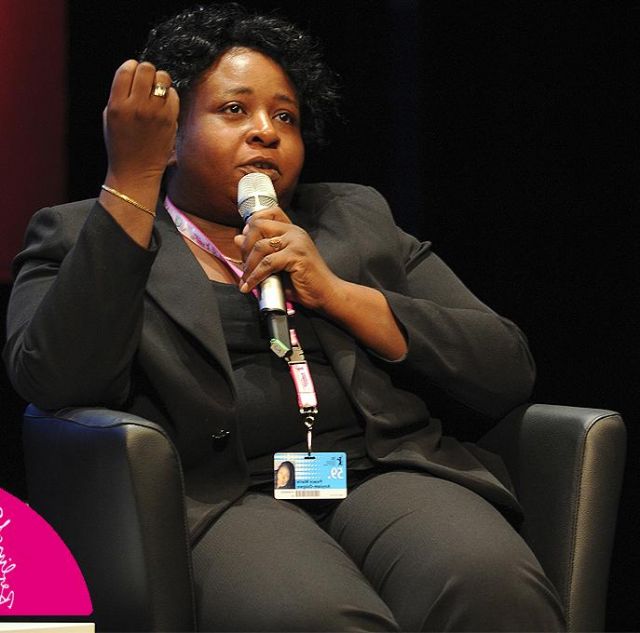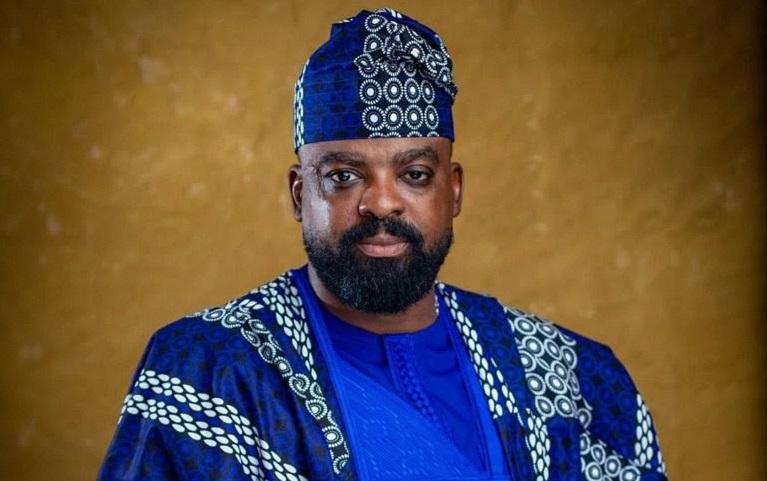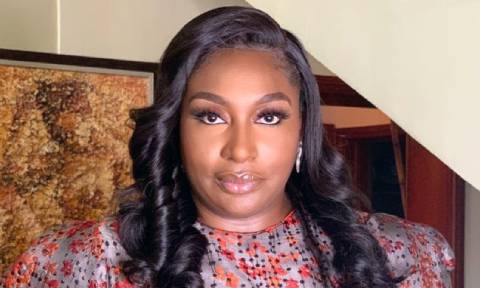
Peace Anyiam Osigwe, founder and President of African Film Academy (AFA), organisers of the yearly African Movie Academy Awards (AMAA) is on her way to recording another feat in her desire to helping the growth of filmmaking in Africa. The author, lawyer, producer, publisher, administrator and daughter of the late philanthropist Anyiam Osigwe wants to start raising funds for African cinema. The AFA-Film Fund will be launched today at the New Expo Centre of the Eko Hotels and Suites, Victoria Island, today. She tells Moviedom that she is on ‘selfless journey’ to liberate African cinema and not ‘on a selfish journey’ as insinuated by her detractors.
From AMAA to AFA-Film Fund
WELL, my journey with AFA and AMAA is not, and has never been, a selfish one because it has not enriched me in anyway. For me, it is a journey embarked on for the sake of African cinema. Seeing the problems people encounter in their effort to make films in the continent and the lack of a distribution network for our films, I realise that we could use this brand — AMAA — that we have collectively built to raise some money to help infrastructural development of cinema in the continent. However, rather than appreciate our modest contributions, which do not stop any other funding mechanism from existing, what I get is insults and character assassination. For us at AMAA, the show will go on. We will launch the film fund today and then, begin the journey of raising money. We have mobilised everyone who has the interest of African cinema at heart to attend the event. And we are looking forward to having a memorable ceremony.
Why African Film Fund and not a fund for Nigerian filmmakers?
I have for a long time run away from seeing myself just as a Nigerian and that is actually putting me in a box. And because of the numerous issues that the Nigerian film industry seem to have, it is easier for me to toe the line of AMAA, which has been recognised, and so, we are not seen any more as a Nigerian event. People have lately accepted the fact that we talk for African Cinema. We will have a special area in the Fund for Nigeria because there are investors who want to just invest in the Nigerian film industry. However, there is a need to have a film fund in the continent so that we are able to be in control of our content. And that is the real reason I am pushing for an African Film Fund. Now, FEPACI is also supposed to have their own African film fund and I think they are going ahead to do that. However, as a result of our work and what we have built over the years, we feel we are in a position to have the Fund. We want to be in a position to help people on their next projects. So that is really what we are looking at. We still do the workshop which is our capacity building arm and we actually have one that will be part of the African cinema business round table. Though we are doing capacity building, we think we should have a fund where they can apply themselves. And that is why we are working with the Directors Guild of Nigeria (DGN) this year on a special project -— three short films not more than 10 minutes long called Nigeria, the New Dawn. The Guild has already called for entries and we are funding this with our partners so we can also show what can be done. And the whole idea is the film will be circulated once they are done and to get people to watch the films and see what is actually happening in the Nigerian film industry. Hopefully, if we are able to raise funds we can turn one of the short films into a big feature. That is what we are working on with DGN.
But why is filmmaking in Africa and indeed in Nigeria still heavily private driven?
It is as a result of government’s involvement in the business of filmmaking. This is retarding progress. The problem with our parastatals — the Nigerian Film Corporation, the National Film and Video Censors Board and the Nigerian Copyright Council — is that they are trying too hard to change the industry from outside rather than inside. You want formal changes in the industry, but you are not willing to do it from within. You want to make rules that only you will listen to, and at the end of the day, those rules will not work because you are not funding these people. So, the NFC needs to come into a relationship with the industry and find out how we can move together. I think it is time for both sides to come together and have a meeting of minds and try to find out the best way to help this thing. We are supposed to be on the same side with government. This is one industry that has created jobs, funded itself without government’s assistance. This is one industry that can still create job. I think the Minister of Finance should even engage the industry on a way to move it forward. This brings me to the representative body called the Coalition of Nollywood Guilds and Association (CONGA), which has just been set up. They can now engage government in a formal discussion to say these are our problems because nobody will say they are divided; there are too many organisations, and no one is in charge. Now, hopefully they will see that there is one body, which is a coalition and which is just a body for the people, by themselves and for themselves, which is what Nollywood is all about. I think CONGA will stand if all of them will take away their selfish needs and I think the industry is at its lowest ebb. We need it to stand. This is why when it was being launched; a lot of us left what we were doing to witness it. Let us see how it works. We should support them and see how it works. Of course, there will be the renegades, those who will think that CONGA is eroding their powers. But anybody that has any serious interest in the film industry is going to want the body to succeed because it is also going to limit all the other issues we have had including the internal fight in the different guilds.
So, outside CONGA, what is the way forward?
I think we need active guilds. We need to also work out distribution, engaging the distributors and really understand what the problem they have are and look at ways of solving it because the distributors are suffering from funding issues. When they want to release their films, they are unable to bring out required quantity, at the end, pirates have a field day. It is about engagement. Engaging the industry from the producer to the marketers and engaging the cinema owners that we have right now and making them understand why they need to take more content than they are taking right now. It is not about making promises or rendering speeches, it is about speaking and understanding what the other person is saying. So, sitting down talking and working out the processes will actually bring back Nollywood to what it used to be. This is why I think CONGA should be given every chance to succeed. I mean they will surely succeed once they take away their issue of self-aggrandizement and actually work as a team. There are chances that we can get back Nollywood. I mean I was at a movie premiere recently and it was sold out. That makes me happy. It means there is hope.
After today’s launch, can filmmakers start applying?
Well, not so soon. We shall announce when that will be. We are still networking across the continent. We are working with other organisations to put down the formal structure for the fund and the way it will work so that it will be reflective of what we are trying to achieve. I think all our paper work will be in soon and we should be ready to go after the launch today in Lagos. We intend to be able to call for projects and have the very first discussion on the projects at the African film mart of the African Film Festival in Port Harcourt. That is one festival I want to encourage all African filmmakers particularly my colleagues here to embrace. We need to increase our level of networking. Enough of this staying at home and playing mister know all, when you don’t know jack. We need to forge collaborations and that is the reason we are working tirelessly to ensure that we get the maiden edition of the African International Film Festival off the ground. I am serving as the Content and Creative Director on the board and that is because I think we need such festivals to really grow Nollywood and African Cinema.



















